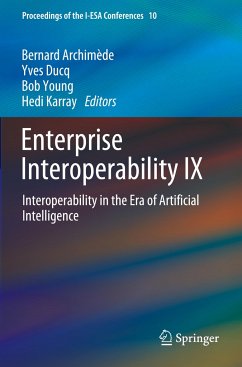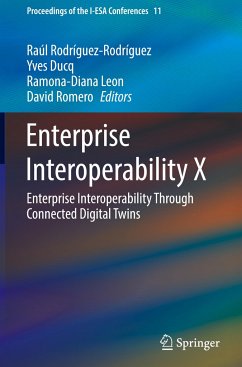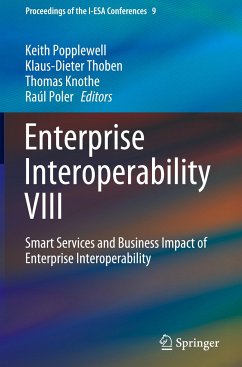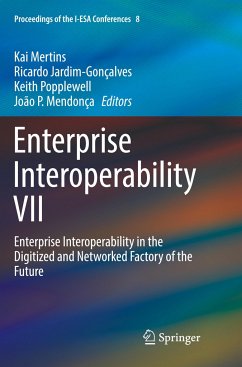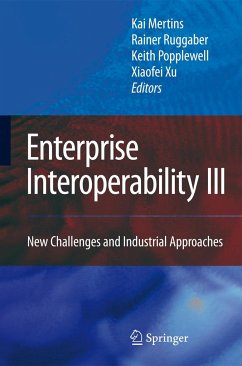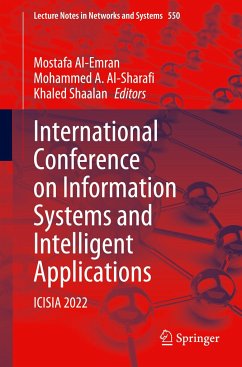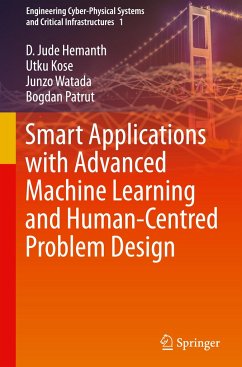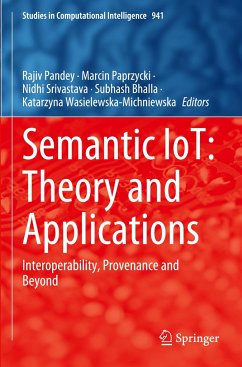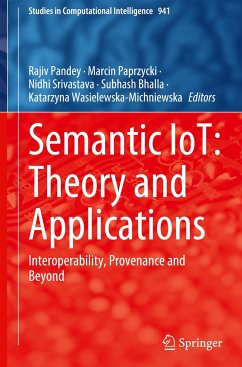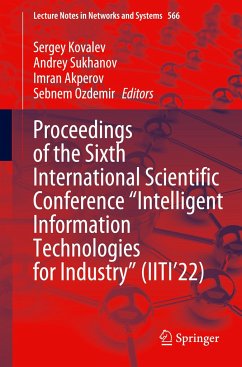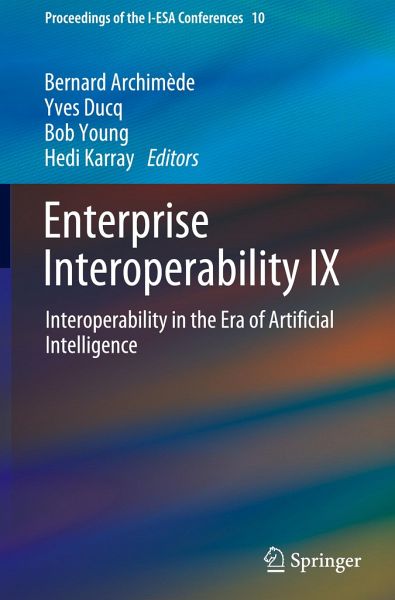
Enterprise Interoperability IX
Interoperability in the Era of Artificial Intelligence
Herausgegeben: Archimède, Bernard; Ducq, Yves; Young, Bob; Karray, Hedi

PAYBACK Punkte
83 °P sammeln!
This book gathers the proceedings of the I-ESA'20 Conference, which was organised by the National Engineering School of Tarbes (ENIT), on behalf of the European Virtual Laboratory, for Enterprise Interoperability (INTEROP-VLab) and the Pole Grand Sud-Ouest (PGSO) and was held virtually in Tarbes, France, in November 2020. It presents contributions ranging from academic research and case studies to industrial and administrative experiences with interoperability. These contributions show how, in a globalised market scenario-where the ability to cooperate with other organisations efficiently is e...
This book gathers the proceedings of the I-ESA'20 Conference, which was organised by the National Engineering School of Tarbes (ENIT), on behalf of the European Virtual Laboratory, for Enterprise Interoperability (INTEROP-VLab) and the Pole Grand Sud-Ouest (PGSO) and was held virtually in Tarbes, France, in November 2020. It presents contributions ranging from academic research and case studies to industrial and administrative experiences with interoperability. These contributions show how, in a globalised market scenario-where the ability to cooperate with other organisations efficiently is essential in order to remain economically, socially and environmentally cost-effective-the most innovative digitised and networked enterprises ensure that their systems and applications can interoperate across heterogeneous collaborative networks of independent organisations. The focus of this edition of the conference is on interoperability in the era of artificial intelligence and so particular attention is paid to Industry 4.0 and the Internet of Things. The content also addresses smart services and the business impact of enterprise interoperability on organisations. Many of the papers in this tenth volume of the I-ESA Conference proceedings include examples and illustrations to help deepen readers' understanding and generate new ideas. Offering a detailed guide to the state of the art in systems interoperability, the book will be of great value to all engineers and computer scientists working in manufacturing and other process industries, and to software engineers and electronic and manufacturing engineers working in academic settings.





